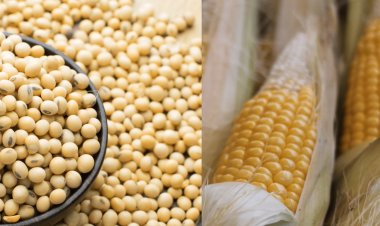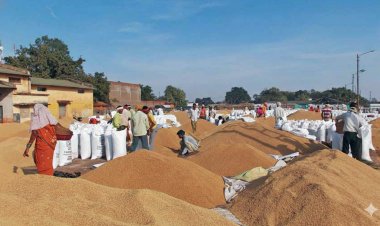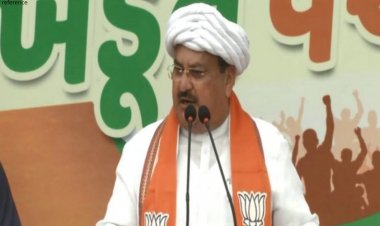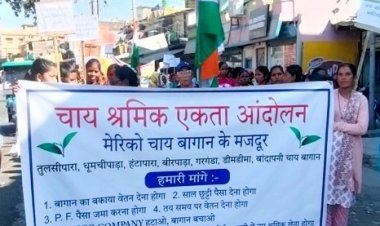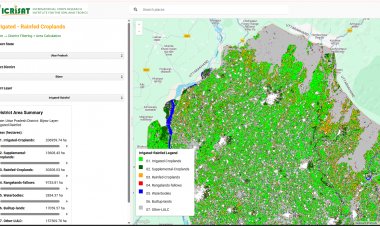Centre steps in on hybrid paddy issue, plans to override Punjab govt’s ban using Seed Act
The central government is working to nullify the Punjab government’s order banning hybrid paddy varieties by invoking provisions of the Seeds Act, 1966. It is being argued that under the Central Seeds Act, state governments do not have the authority to ban notified varieties.
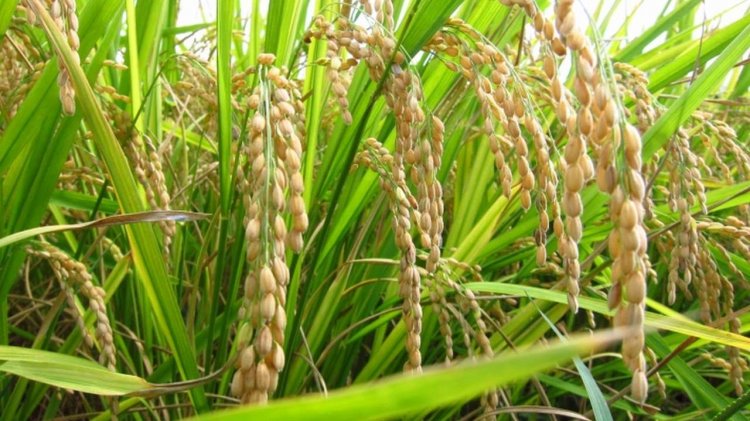
The central government is likely to use the provisions of the Seed Act, 1966, to nullify the Punjab government's order imposing a ban on the cultivation of hybrid paddy. The Punjab government issued an order on April 7th, prohibiting the sale and sowing of hybrid paddy seeds. The matter is currently under consideration in the Punjab and Haryana High Court.
Meanwhile, sources indicate that the central government has initiated efforts to counter the Punjab government's order by invoking the Seed Act, 1966. According to sources, the central government argues that the state government does not have the authority to ban notified varieties under the Seed Act. This argument was also presented by the central government during a hearing in the Punjab and Haryana High Court on May 5th. The next hearing on the matter is scheduled for May 13th.
The seed industry contends that the paddy sowing season is progressing rapidly, and any delay in the decision could result in a loss of ₹12,000 to ₹15,000 per acre for Punjab farmers this year due to the unavailability of hybrid seeds. A similar ban was imposed by the Punjab government on hybrid paddy varieties in 2019, but the issue was resolved. However, this year, the Punjab Agriculture Department once again issued an order banning the sale and sowing of hybrid paddy seeds, citing higher breakage during milling as the reason.
Some farmers and seed sellers in Punjab have approached the High Court against the ban on hybrid paddy. The first hearing in this case took place on April 25th, followed by subsequent hearings on May 2nd and May 5th. During the hearings, the Punjab government argued that the ban on hybrid varieties was imposed under the powers granted by the State Seed Act, 1949. In contrast, the petitioning farmers and seed sellers argue that the central government's Seed Act, 1966, overrides the interim seed orders of 1949 issued by state governments. This implies that the state government does not have the authority to ban varieties notified by the central government.
During the May 5th hearing, Assistant Solicitor General (ASG) Satya Pal Jain, representing the central government, stated that the Punjab government has no authority to issue such an order. He emphasized that before notifying hybrid varieties, the Indian Council of Agricultural Research (ICAR) evaluates their production, milling recovery, and suitability according to agro-climatic zones. The Punjab government has no right to ban hybrid varieties notified by the central government.
The petitioners had requested the court to stay the Punjab government's order. Justice Kuldeep Tiwari, who is hearing the case, has asked the central government to submit its response in writing to be placed on record. The ASG, appearing for the central government, sought two weeks' time for this. However, the lawyers representing the farmers and seed dealers argued that if the hearing is held after two weeks, the sowing time for the current Kharif season will pass. Following this, the court scheduled the next hearing for May 13th.
Meanwhile, sources believe that the central government may intervene in this matter. As the Joint Secretary (Seed) of the central government is also the Seed Controller, who has the authority to override the Punjab government's order of banning hybrid paddy seeds.
Hybrid paddy is cultivated on approximately 500,000 acres in Punjab. Savannah Seed Company's hybrid variety, Sava 7501, has a productivity of up to 85 quintals per hectare and matures in 125 days. This allows farmers to earn an additional ₹12,000 to ₹15,000 per acre. If Punjab farmers are unable to cultivate these varieties, they will incur this loss.
Due to their higher yield and shorter duration, the acreage under hybrid paddy in Haryana has surpassed that of Punjab, with about six lakh acres under cultivation. Last year, Haryana witnessed long queues of farmers to purchase hybrid paddy seeds.
Despite the ban in Punjab, many farmers are keen to buy high-yielding hybrid paddy seeds. The Union Ministry of Agriculture is also actively involved in this issue. However, the matter has been delayed due to the ASG seeking two weeks' time to file the central government's written response. The central government may resort to the Seed Act, 1966, to negate the Punjab government's order prohibiting hybrid paddy cultivation.



 Join the RuralVoice whatsapp group
Join the RuralVoice whatsapp group



























